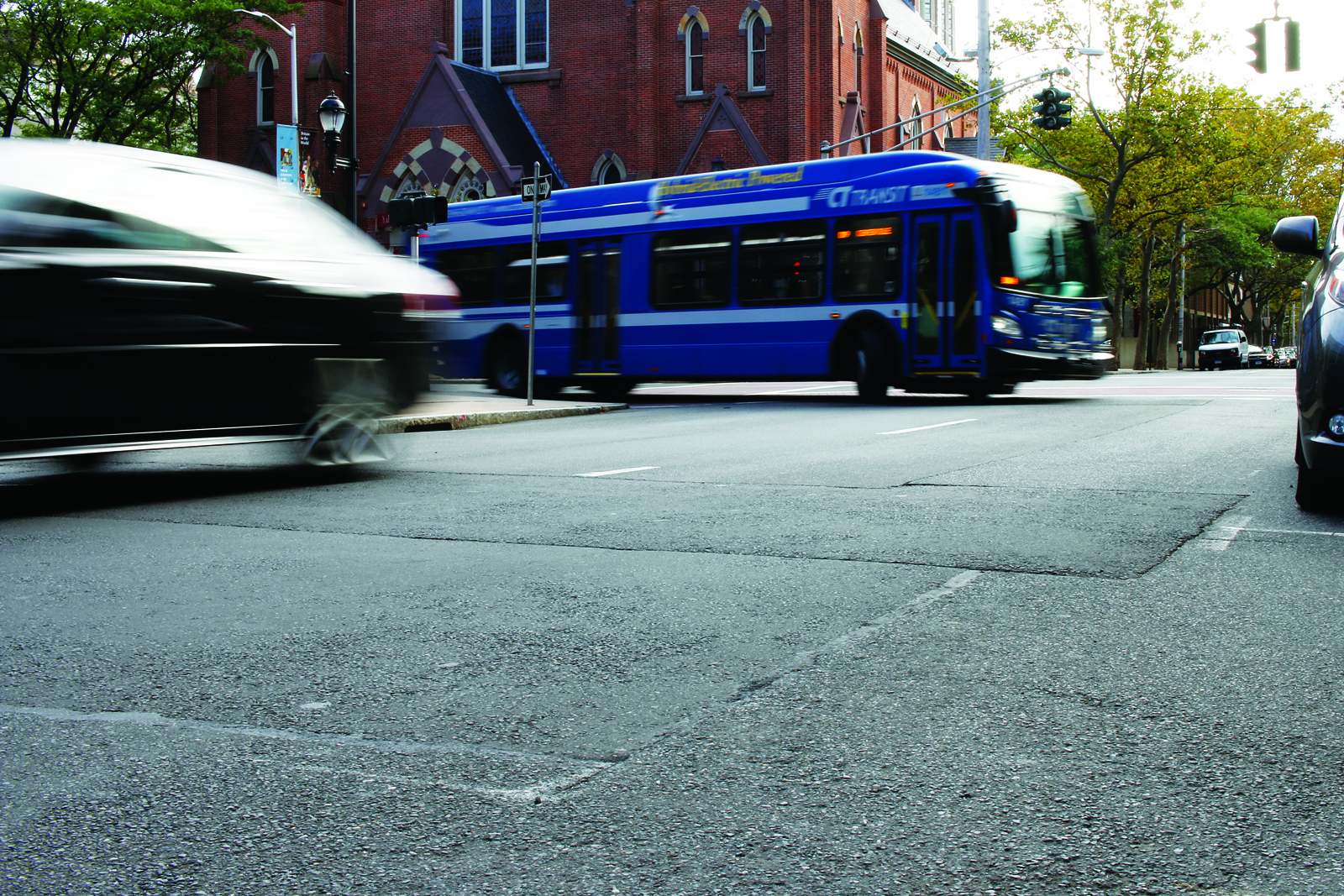
To make up for budgetary shortfalls, state transportation officials are planning to raise bus fares by 17 percent, but they will be putting the burden to pay on the state’s low-income and disabled residents, residents and city officials say.
To compensate for $37.5 million in cuts, the Connecticut Department of Transportation plans to raise one-way fares on CT Transit buses to $1.75 from $1.50, effective Dec. 1. This plan has fallen under criticism by activists and city officials for forcing bus users — many of whom have a fixed income between $600 and $800 per month and depend heavily on subsidized transportation — to help make up for the entire department’s lack of funds.
The fare hike of 25 cents will especially impact low-income people, said Marc Anthony Gallucci, executive director for the Center for Disability Rights. For riders with a disability, a 50 cent increase would have a burdensome effect, he added. Not only would the price hike prevent low-income and disabled people from using the bus for practical purposes, but it also causes them to be socially isolated, Galluci said.
The department could employ other options to close the budget gap, including raising gas prices by one cent, Galluci said.
Though the plan has yet to pass, the department has a multidecade history of following through with planned price increases, Galluci said.
“Past behaviors predict future behaviors,” he said.
But officials at a Sept. 15 meeting said the department would take criticism into account, according to the New Haven Independent.
Commissioner James Redeker will ultimately determine whether or not to raise fares. His decision will be determined in large part by a new card system intended to allow people to pay the least amount possible.
In New Haven, roughly 24.2 percent of the population regularly rides the bus, according to the Department of Transportation.
Still, Doug Hausladen ’04 — the city’s director of transportation, traffic and parking — questioned why state officials would consider raising prices on a vulnerable population. He said he is “not sure what caused the internal decision of the Connecticut Department of Transportation” and said the department did not consult New Haven before making the proposal. Although he understands budgetary needs and knows New Haven does not have a say in the matter, Hausladen opposes the increase and hopes the state government will change its mind, he said.
“We know [the price increase is] a real problem,” he added.
According to four bus riders interviewed at the stop across from the Loria Center, users widely view the fare proposal as negative.
For New Haven resident Annie Floyd,the new price would have a negative impact, she said, adding that she has no other option than to continue taking the bus.
Others criticize the increased fare because CT Transit is late, unreliable and overly crowded at peak hours. Erika Vergara, another resident, said the new fare would be horrible, especially given the service’s inefficiency. Although she can afford to continue riding the bus after the change, she knows many people who will not be able to, she said.
A series of hearings throughout the state of Connecticut to discuss the change concluded Sept. 15.
Interested in getting more news about New Haven? Join our newsletter!







